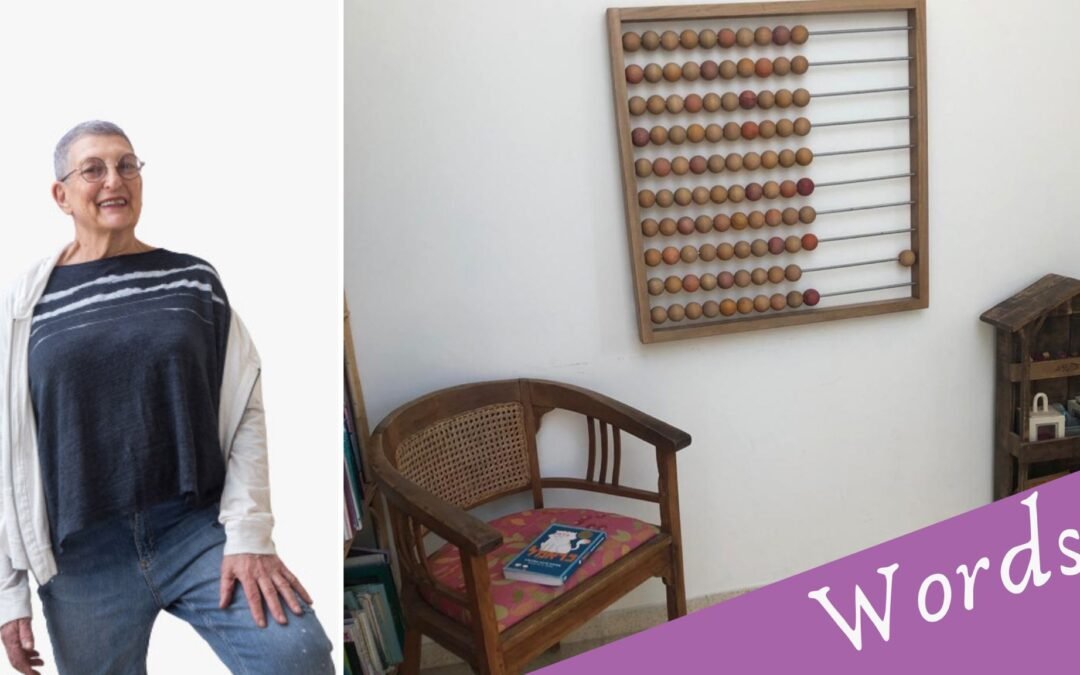
Nov 4, 2021 | Blog
It was his first visit.
Waiting at the door to greet Tom and his father, I noticed the reluctance of his walk climbing the stairs.
We sat down in the clinic room. Dad sat with us, but my focus was on Tom. After taking basic information on what he enjoys at school and what he does after school hours in his own time, I asked him why he had come to me. I knew from his dad that he had problems in reading, and there was hardly any reading motivation. While he was sharing information, I felt that he was not really interested in my help, and he wanted to run away.
“What can I help you with?” I asked
“I don’t know why I am here… my parents made me come!”
“What did they say to you? You don’t look like a person who agrees to be taken to places?”
“They said that you would teach me to read, BUT I know how to read, so what am I doing here?” there was some anger in his tone.
A big part of the success of any lesson with pupils who come to me is finding their reading motivation. If a child does not want to read, no force will convince him to do so. A child has to find their reading motivation to invest in his learning. I knew that I needed to understand the differences of versions between parents claiming he could not read and his version of an ability to do so.
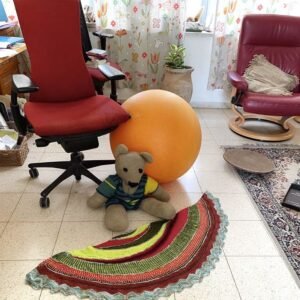
Left or Right
“So, let’s check it out together. But before that, I want to check out your profile to see what side of your brain the dominant side is. Left or right.” Checking out a person’s profile gives me a direction of how they cognitively do things, whether mathematics, reading, or writing.
I explained to him, the different ways of thinking that each side is responsible for, and he immediately said, “I am left dominant!” Checking it out, he was correct. When explaining to students the differences, they usually know the way they think.
We then went to investigate the reading. I noticed that he stumbled on long words because he could not see the whole word. And indeed, after some moments, I felt that he had lost all reading motivation. Left-brained dominants often see parts and not the whole. He collected the sounds of the letters without re-reading the word that he had difficulty with and therefore did not really understand the word or the sentence, and the story became a collection of sounds.
At the end of a paragraph, I asked if he could recall what he had read. He remembered names, places but he could not put the parts together into a story. He hadn’t a clue of what the sentences were telling him. It became clear that there was a gap between what he perceived as the concept of reading and what others perceived. He could read the signs and symbols, but they had no meaning, and thus a book was just hard work and no fun.
I then said: “I see that you do know how to read (giving him feedback on his abilities), but I can understand that you don’t enjoy reading and what I would like to do is to teach you to enjoy and have fun in reading books!”
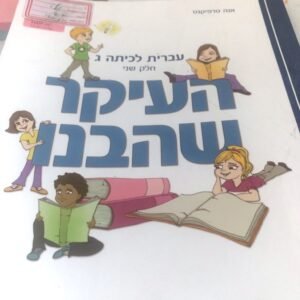
Enjoying Reading
He listened carefully and then turned to his father and said, “You see, she says something entirely different from you.” His dad looked at me with puzzlement in his eyes, and then Tom continued and said: “You said that she would teach me to read – which I know how to do. But she said that she would help me to enjoy reading.”
“I really would like to meet again.” I said,” I am sure that books could become your friend and not your enemy. But I am only prepared to continue with you if you want to learn to enjoy the world of books. But before you decide, I want to do an exercise with you.”
I understood that Tom, a very bright and inteligent kid , had to decide that he wants to come, not just be dragged by his parents. It became clear to me that he needed to find his reading motivation for us to work together.
I then gave him a story made up of 4 pictures. I cut each image separately and asked him to write what he thought he saw after looking at each picture individually and separately. He told me short stories; each referred to one picture. I then placed all the four images on one page to see how one picture related to the next, and together they formed a whole story. He immediately said, “but now it is a different story!”
“Okay, so now write the new story you see.”
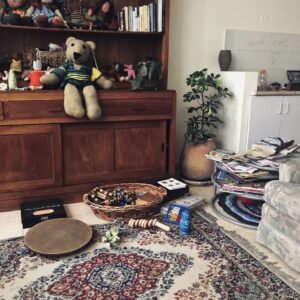
We compared the two versions, and we discussed the difference between seeing parts and not the whole.
“And that is what reading is about!” I said. “Now, what is your decision?”
Without hesitation, he answered, “I understand what you are telling me. Can we meet again? Learning to enjoy reading is completely different than what anyone told me until now.”
Dad and Tom left with smiles, and I remained with a great sense of motivation and energy and with a question of wonder, ‘how a small difference in wording can change motivation.
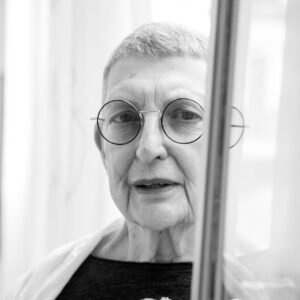
I have a very basic belief. Everyone can learn. The only question is “how?”
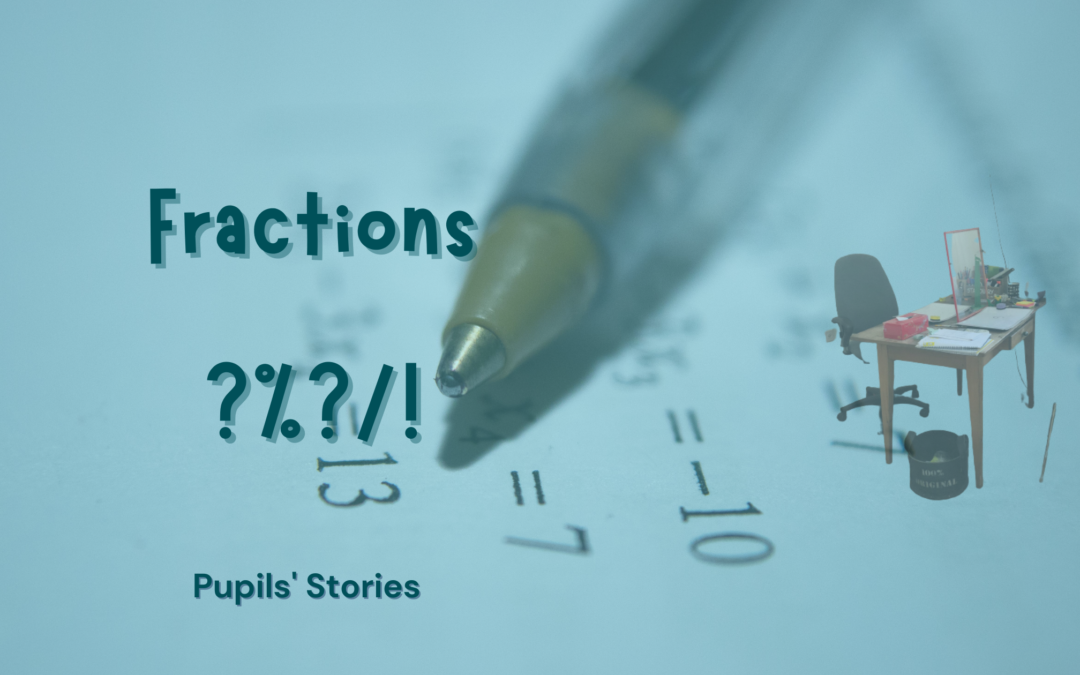
Jul 16, 2021 | Blog
(more…)
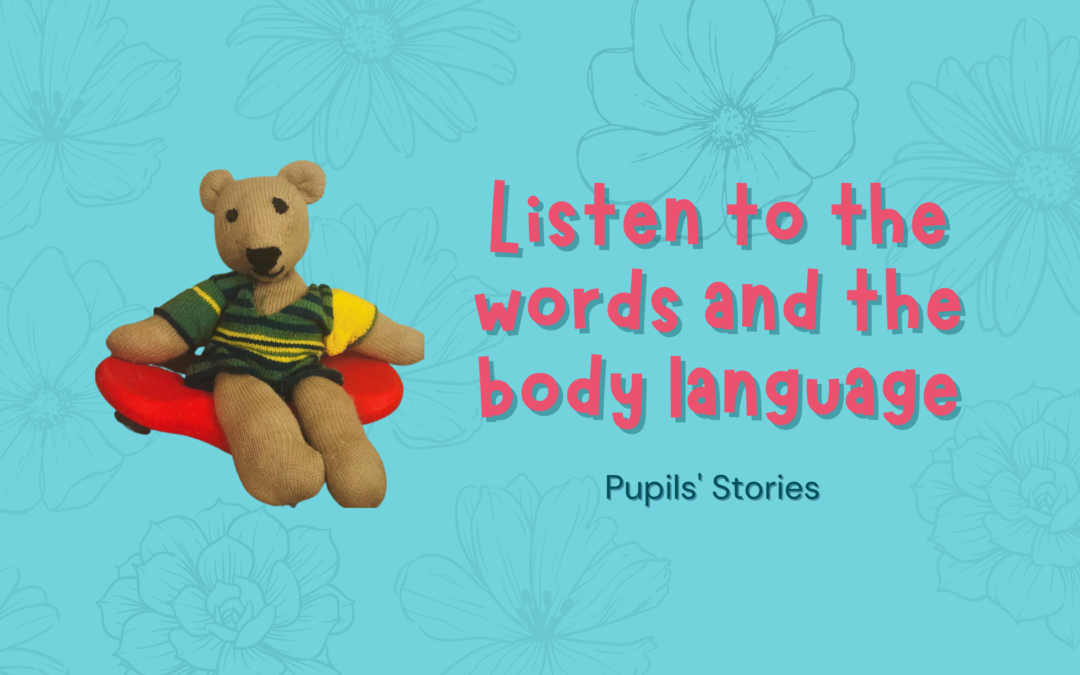
Jul 8, 2021 | Blog
Often, I am asked what method I use in my teaching. It has made me wonder repeatedly what the answer to this question is? Perhaps today, it would be “listen carefully to the words and the body language.” That is my method. After years of working with learning challenged pupils, I still open the clinic door, with excitement and wonder what knowledge I will acquire from my pupils during our sessions. Something not written in any method but something that comes out of noticing each tiny nuance of the cognitive or flicker of the eyes.
He walked into the room, and I just saw eyes. Big, blue eyes. The color of oceans and the blue of skies. I am not surprised that, that was what I noticed first. His eyes speak more than words.
He came with a sad face and a feeling of failure that he had not understood the mathematics that was taught in the lesson at school..
“Did you now understand the explanation, that you just heard from me?”
And the words that come out were very polite and hesitant.
“Yes, I think I did.”
His eyes were much more communicative and left no doubt in my mind – there was no flicker of understanding or even life in them.
I see that your eyes are telling me that they did not understand. So, let me explain in a different way.
A big smile of relief. He was so used to being polite – thinking that if he said he did not understand, he was insulting the teacher.
I asked him to explain how he would do the exercise on his own. From his explanation I could understand where the difficulty stemmed from.
This time I explained more visually than cognitively. Describing the mathematic terms as pictures and then like the sun rising to light up the darkness of the night, his eyes lit up and smiled. The eyes had come alive and were happy. There was understanding.
“One more exercise to do on your own and let us see how it goes.”
Of course, the results were great. The memory intact and understanding from eyes to brain.
Does this also mean that the visual is always stronger than the auditory with him?
Immediately we tried it on learning new English vocabulary and discovered that it was easiest to flash different colored cards and have the translation at the back. So, the card was flashed seeing the front and then the back. And it amazed us both to discover how quickly he remembered them all. So again, those eyes were the door to memory. “I remember that was on the red card!” he excitedly announced.
So, what was the method? And why did I try teaching through the visual? His eyes looked at me with no life in them and made me want to give them life and a flicker of hope. His body language showed me the way and I just followed instinctively. Our brains gather information from many sources, and when teaching pupils, we need to find the pathway for that particular pupil. Some first see and understand the visual and then words are put to the picture, some learn in the exact opposite way. Am always surprised to discover more and more methods of remembering and learning skills from the pupils themselves. Their body language often leads me to a method that is suitable for them.
When trying to understand the difficulties of pupils, listen to the words they use, as well as listening and watching their body language carefully. The two together lead to a more efficient method for that particular person.

Jul 15, 2017 | Blog
There are times when one sits with a pupil that the session ends without really pushing the student forward but one finishes it with an open question. This sort of question leaves one’s thoughts open and waiting to see if a change naturally occurred during the week or if I can help solve something more in the whole process.
There was a period in my teaching career where I was convinced that every lesson should end with a definite answer to a problem. With experience, I have learned that one can conclude with an open question and not know the answer.
Gal goes to a special school. We have been working together for quite a while now.
During our last session, he surprised me a couple of times with his reading ability. When I put a book in front of him and asked him if we had read this book. His answer was “yes, but that’s okay, it is always good to re-read books because I know what the story is about.”
His reading in certain parts was perfect and in other parts had no connection to the letters at all.
After a few pages, I stopped and looked him straight in the eyes and said. “I have a question for you, I need your help, there is something that I am not understanding”.
“OK”, he answered.
“How come that sometimes you read perfectly and sometimes I can’t really understand what you are reading?”
He looked at me and with a very knowing smile said:
That’s my magic!”
What do you mean by that?” I asked.
“That’s for you to work out .” was his answer.
What else could I do but give him a big hug and remain with the mystery still to be solved?
This left me with a question unanswered and curious to know what would happen the next week. There was no real way to plan the way things should or would go, I just knew that one of the key words that I had learnt today was “my magic” and am looking forward and excited to actually use his words to help solve the problem of his reading because it must mean something important to him, otherwise he would not have come up with an answer like that.
Jun 3, 2017 | Blog
After all these years working with children in the clinic with their learning challenges, I am happy to say that I can still end a session with tears of excitement and happiness. I can still attach myself to that little girl deep down inside of myself that so needed and wanted encouragement but always had the feeling that “I was only a girl” and not really important to be way up there in class with the rest of the boys. The most I was given by my teachers was “You can do better!” But no-one showed me how
I tried….goodness I tried, but as hard as I tried, nothing moved one millimeter from that place that I was at. My mission in life seems to help others “get there” and what a wonderful feeling it is when I see that smile of victory on their faces.
Claire [fictitious name], 15 years, loved reading. What did she come to me for? It was not clear at the beginning but I know that there is always a reason for a parent bringing a child. I felt a lot of suspicion coming from Claire. I didn’t feel that she was open to me or my teaching. I knew that I had to win her trust before we could do much more. We spoke a lot about the current book she was reading. “Harry Potter”. Every time she came back and I asked about her reading she was reading the same book. “But I thought you said you had finished reading it?” I said.
“I have”, she answered, “but I love the book and read it again and again.”
I was beginning to get suspicious. “And each time you enjoy it anew?”
“Each time is like the first time and I enjoy it tremendously.”
My hand reached out to a book on the bookcase which seemed to be calling out to me “take me!! take me!!” It was not a book that I would have thought of for Claire. Nevertheless, I trust these inner feelings of mine. She started reading and read faster than an express train. I did not gather one bit of information from this kind of reading.
“Stop,” I said, ” when you read like that there is no way that I can follow what is going on. Can you? Do you remember what you read?”
“Of course I can!” she answered indignantly.
When asked to give a summary of what she had read, she could recall very little of the information. I did not say anything but just asked her for my own understanding and memory to read it again – sentence by sentence.
“How would you describe what the boy meant when he said that he has little boxes in his head?”
She explained carefully to me that it meant that he has thoughts of this and that and then she got up from the chair and very softly said: “That is why I cannot recall what I read – I too have many boxes in my head!!!”
Silently, I thanked my hand for reaching out for the exact book that was needed to help solve our problem.
And it was the end of our session!! I wanted to scream! How could we end the session at this important moment!! We had got to the essential of it all !! but just then, the doorbell rang and with all the confidence I could gather I said: “Claire, that was such an important thing that you shared with me, thank you and we will talk about it next week.
Next session seemed as if we had both eagerly awaited for its arrival.
She sat down and without much ado started opening up those little boxes. I was aghast at hearing “each box’ which mostly had to do with the teachers and the way they related to her. Now, what to do? If I was a psychologist this would have been the beginning of a series of ‘sessions’. But we had no time for this and I was not a psychologist. I then asked her to start writing positive affirmations about herself. Positive affirmations that she was a worthy human being. Statements of how she would not allow her teachers to cause her sleepless nights. She wrote 15 affirmations. She read them aloud time after time until I could hear in her voice that she believed in what she was saying and was convinced of her own truth.
Now take the book and read, I asked her.
She read. She read so much slower without me telling her to take note of her speed. She could then recall 90% of it. She looked at me and said
: “My reading came out slower but I could follow everything and there were no boxes in my brain to disturb the understanding!”
Hallelujah!! Not only had 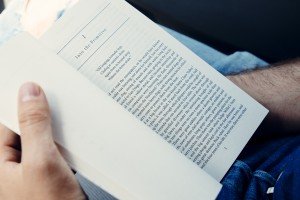 we helped her reading and understanding but even more important was her self-esteem
we helped her reading and understanding but even more important was her self-esteem
AND THE SMILE ON HER FACE SAID IT ALL!!

Aug 17, 2016 | Blog
I receive calls like this everyday. A mother contacts me. She’s been referred by the teacher, the school advisor, the principal or a friend….I am told that I am the last resort. The family has done everything right. They have put the child through expensive assessments, child has had extra lessons at school with a special ed. teacher, parents have taken direction from teachers, seen more mainstream specialists. They have carried the assessment from specialist to specialist holding the envelope out as an introduction to who the student is. …
Isaac’s mother called: “Would you like me to bring the assessment that was done last year for Isaac. The Assessor wrote that he would not be able to go further than third grade reading. He is now at the age of wanting to get a driving license but he will not be able to because he cannot read, and now more than ever he wants to learn.”
“NO! NO! I don’t want to read a static assessment and I don’t want to hear that sentence that he won’t be able to go further than third grade reading”. I answered.
Intuitively, I had blurted out ‘static assessment’. But suddenly realized that that is exactly what it is. Assessments are done and they are so expensive. They are usually done only once or twice in the life of the student. This piece of paper continues with the child throughout the years of learning without being upgraded. Do we stay the same? Do we not improve? What is the aim of this assessment? People that assess do not always know how to teach and not all teachers know what to do with the concepts that are written in assessments.
They are usually given recommendations in broad terms and the teacher has to take the initiative to help student as best as she can. And usually this is what she has done before the assessment anyway.
His mother wanted to know if I was willing to teach him.
“Only on one condition.” I said, “If he wants to make the effort to truly learn for himself. I cannot believe that he is 15 years old and has no reading skills.I would certainly like the challenge of teaching him, but only if HE wants to put his energies into it.”
The following week I received a call saying that Isaac really wants to learn to read and when can he come. I had an opening that very day and so we met for the first time.
A very quiet, good looking, stocky blond fellow came into the room. I could sense his insecurity by the way he did not look me in the eye. He is a very left dominant brained student, meaning that he is one for details. His favorite hobby is building model aeroplanes. He sees the picture and then starts gluing one piece at a time…
So how does that relate to reading?
In reading he sees each letter separately and not part of the word and then each word he sees apart and not part of a sentence. There is no way he can comprehend what he reads and so there is no real reading.
But, I ask myself why the assessor cannot see that he will be able to read as he has all the parts…he now has to just build the whole!
I do admit that I was a bit disappointed, I thought I would have the challenge of teaching him to read but the challenge now is how to build an aeroplane from the parts, or how to
read sentences from the words or how to read words from the letters.










